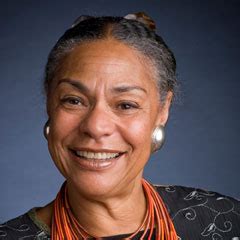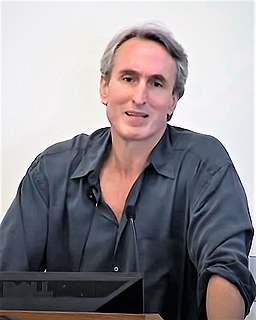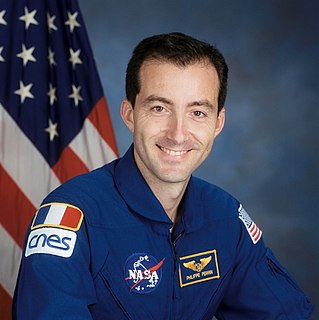A Quote by Geoff Mulgan
Science is, rightly, searching for drugs to arrest ageing or to slow the advance of dementia. But the evidence suggests that many of the most powerful factors determining how you age come from what you do, and what you do with others: whether you work, whether you play music, whether you have regular visitors.
Related Quotes
Science is nothing more than a method of inquiry. The method says an assertion is valid - and will be universally accepted - only if it can be reproduced by others, and thereby independently verified. The impersonal rigor of the method has produced enormously powerful results for 400 years. The scientific method is utterly apolitical. A truth in science is verifiable whether you are black or white, male or female, old or young. It’s verifiable whether you know the experimenter, or whether you don’t.
It's not a matter of how much you know or can define, or how many millions of mantras or thousands of prostrations you have done, or how many months of wangs you've attended. The important thing is whether or not the mind is really changing, whether our negative emotions are really coming under control, whether we are really beginning to understand ourselves, whether our mind is really improving, and whether in our hearts there is genuine love and caring for other people.
Worship will never end; whether there be buildings, they will crumble; whether there be committees, they will fall asleep; whether there be budgets, they will add up to nothing. For we build for the present age, we discuss for the present age, and we pay for the present age; but when the age to come is here, the present age will be done away.
I've been around a long time and I've found that these forms, whether it's the cartoon, or whether it's a play, or all these dying forms refuse to die. Something happens to rejuvenate them and it will certainly happen to the political cartoon. It will come back. But whether it's on the internet, or whether it's in some other form, however that works, whether it looks the way it looks now, or entirely different, I have no idea. And thank God I don't have to worry about it.
Successful democratic politicians are insecure and intimidated men. They advance politically only as they placate, appease, bribe, seduce, bamboozle, or otherwise manage to manipulate the demanding and threatening elements in their constituencies. The decisive consideration is not whether the proposition is good but whether it is popular -- not whether it will work well and prove itself but whether the active talking constituents like it immediately. Politicians rationalize this servitude by saying that in a democracy public men are the servants of the people.
What sets science and the law apart from religion is that nothing is expected to be taken on faith. We're encouraged to ask whether the evidence actually supports what we're being told - or what we grew up believing - and we're allowed to ask whether we're hearing all the evidence or just some small prejudicial part of it. If our beliefs aren't supported by the evidence, then we're encouraged to alter our beliefs.



































